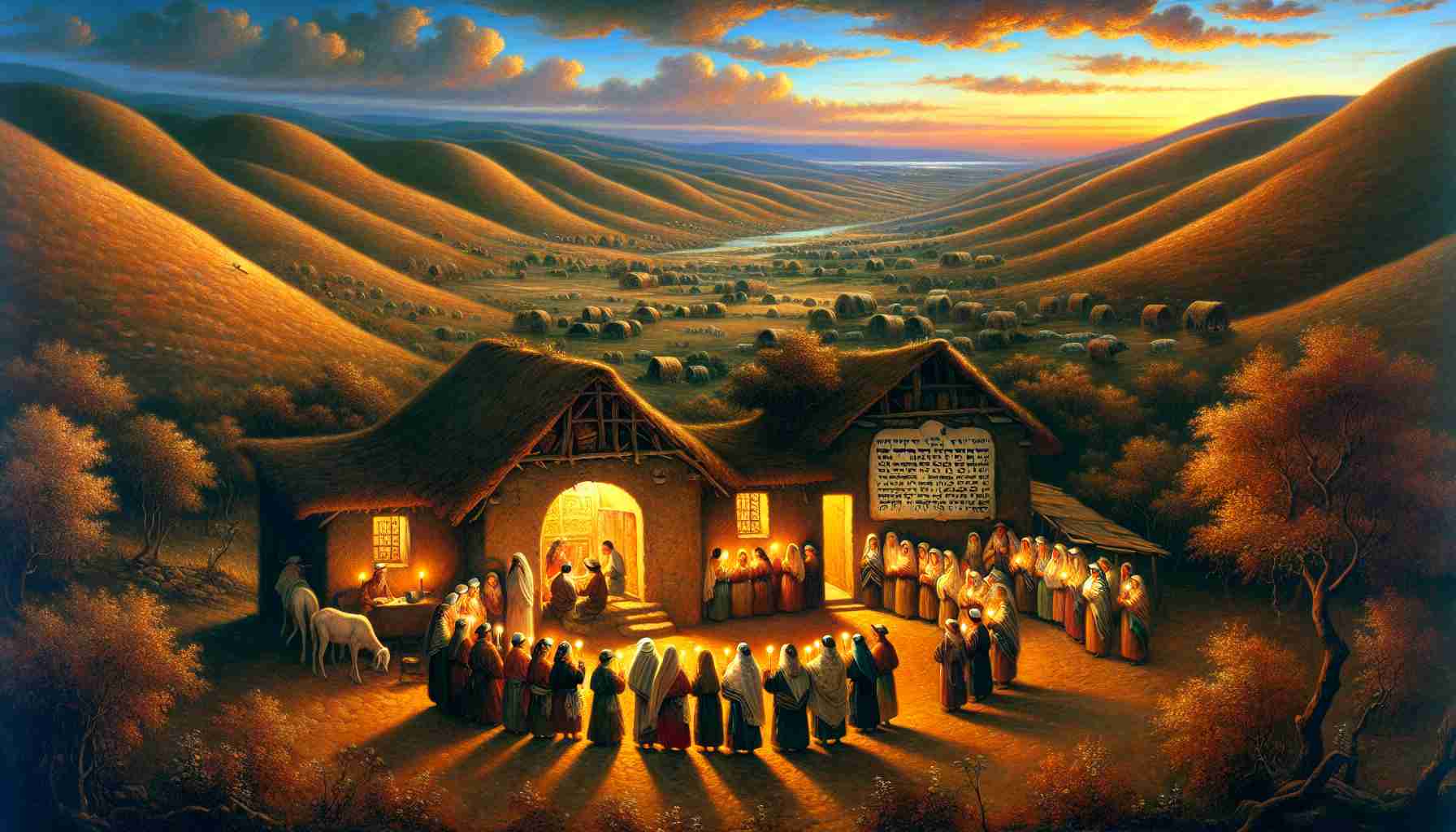

I was no scholar, just a sandal maker in the hill towns of Judea. My hands knew leather and thread better than scrolls and ink, yet the words of the Shema had lived in my mouth since childhood. Even when my back ached from hours of work or when Roman soldiers marched through our village with their cruel eyes, “Hear, O Israel: the Lord our God, the Lord is One,” still passed my lips.
It was my father who taught me the words. We were poor—too poor for formal study—but as we walked the fields, he would whisper them. Each blade of wheat, every bird call, was a lesson. “Keep them on your heart,” he’d say, pointing not just at my chest, but straight into my soul. By the time I was ten, I had all the verses from Deuteronomy 6:4–9 sewn into my memory like stitches in good leather.
Years passed. My own three children grew at my side. I taught them as best I could—showing them how to bind a sandal, sure, but more importantly, how to bind faith to every part of life. “You shall teach them diligently to your children,” it says. When we sat together, when we walked to the marketplace, even when I tucked them into bed, we recited the Shema. Sometimes, I wondered if they understood its weight—or if it had just become habit.
Then came the fire.
It was late one night when a Roman patrol accused our neighbor of hiding rebels. They stormed down the street, setting houses ablaze to send a message. I grabbed my children and stumbled into the hills as screams echoed behind us, the air thick with smoke and prayer. We watched from behind an olive tree as the flames reached our home. Everything—tools, leather, even a scroll gifted to me by a traveler—burned.
My youngest, Leah, only eight, clutched my hand. Her lips moved silently, but I knew the words. “You shall love the Lord your God with all your heart…”
In the face of terror, she chose prayer.
I couldn’t hold back my tears—not just for what was lost, but for what still lived. The Shema hadn’t been in the house, it had been in us. Just as my father gave it to me, so had I passed it on. No flame could reach it.
Later, as we found refuge among relatives in a nearby village, I built a small new workshop. My tools were borrowed, and the sandals I made weren’t as fine. But each evening, we still gathered, and those same ancient words rose into the air.
Bind them on your hands. Place them between your eyes. Write them on your doorposts. For me, they were more than instructions. They were survival. They were identity. They were everything.
I was no scholar, just a sandal maker in the hill towns of Judea. My hands knew leather and thread better than scrolls and ink, yet the words of the Shema had lived in my mouth since childhood. Even when my back ached from hours of work or when Roman soldiers marched through our village with their cruel eyes, “Hear, O Israel: the Lord our God, the Lord is One,” still passed my lips.
It was my father who taught me the words. We were poor—too poor for formal study—but as we walked the fields, he would whisper them. Each blade of wheat, every bird call, was a lesson. “Keep them on your heart,” he’d say, pointing not just at my chest, but straight into my soul. By the time I was ten, I had all the verses from Deuteronomy 6:4–9 sewn into my memory like stitches in good leather.
Years passed. My own three children grew at my side. I taught them as best I could—showing them how to bind a sandal, sure, but more importantly, how to bind faith to every part of life. “You shall teach them diligently to your children,” it says. When we sat together, when we walked to the marketplace, even when I tucked them into bed, we recited the Shema. Sometimes, I wondered if they understood its weight—or if it had just become habit.
Then came the fire.
It was late one night when a Roman patrol accused our neighbor of hiding rebels. They stormed down the street, setting houses ablaze to send a message. I grabbed my children and stumbled into the hills as screams echoed behind us, the air thick with smoke and prayer. We watched from behind an olive tree as the flames reached our home. Everything—tools, leather, even a scroll gifted to me by a traveler—burned.
My youngest, Leah, only eight, clutched my hand. Her lips moved silently, but I knew the words. “You shall love the Lord your God with all your heart…”
In the face of terror, she chose prayer.
I couldn’t hold back my tears—not just for what was lost, but for what still lived. The Shema hadn’t been in the house, it had been in us. Just as my father gave it to me, so had I passed it on. No flame could reach it.
Later, as we found refuge among relatives in a nearby village, I built a small new workshop. My tools were borrowed, and the sandals I made weren’t as fine. But each evening, we still gathered, and those same ancient words rose into the air.
Bind them on your hands. Place them between your eyes. Write them on your doorposts. For me, they were more than instructions. They were survival. They were identity. They were everything.